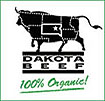Bird
flu situation in Asia remains critical,
FAO warns
Virus
behaviour still not fully understood –
more research
and investment for virus control required
Washington
and Kuala Lumpur,
04 July 2005 - The bird flu situation
in many Asian countries remains critical
and requires more attention by affected
countries and the international community,
the UN Food and Agriculture Organization
(FAO) said today.
“Eradication
of the virus from the eight affected Asian
countries will not be easily achieved.
Highly Pathogenic Avian Influenza must
be considered as an endemic disease and
must be controlled at source in animals,”
FAO’s Chief Veterinary Officer Joseph
Domenech said in his opening statement
at an international conference on bird
flu in Kuala Lumpur. The meeting was jointly
organized by FAO, the World Animal Health
Organization (OIE) and the World Health
Organization (WHO).
“We
notice with considerable relief that a
recent joint WHO/FAO/OIE mission to Viet
Nam concluded that there is currently
no evidence of virus change and that the
virus is not as widely spread among humans
as initially thought. The rumors of increased
human cases and of low pathogenic strain
circulation were not substantiated and
therefore there is at the moment no need
to raise the level of pandemic alert,”
Domenech said.
“But
there is also no reason for complacency,”
Domenech added. “The virus continues
to circulate in poultry and wild birds
and requires highest attention. Many questions
remain unanswered and more research and
major investments for national and regional
control operations are required,”
he said.
He
called upon affected countries to share
information openly about their prevention
and control strategies, which should be
in line with international recommendations.
Role
of Wildlife and Pigs
In particular, the role of wildlife needed
to be carefully investigated. The recent
bird flu outbreak in the Province of Qinghai,
China, showed that wildlife could play
an important role in the dissemination
of the disease. “FAO advises against
the killing of wild birds. Instead, we
are calling for strict surveillance and
prevention measures, both for the separation
of wild birds from domestic animals and
the vaccination of poultry in areas at
risk.”
FAO
said that more research is also needed
to better understand the role of pigs.
“The recommendation based on current
knowledge is to raise pigs and other animal
species separately, and to include pigs
in surveillance plans when an outbreak
occurs in poultry,” Domenech said.
“We are advising against the mass
killing of pigs, which are a crucial part
of farmers’ livelihoods and of food
security in Asia.”
Vaccination
of poultry in risk areas remains one of
the important tools in the battle against
bird flu. In some countries or part of
countries, such as in Viet Nam, where
the virus is widely spread, massive vaccination
could be the only way to reduce infection
in poultry to protect humans.
“Laboratories should speed up their
efforts to develop new poultry vaccines
or to assess their efficiency particularly
in ducks. FAO and OIE have prepared plans
to carry out for the first time field
trials for vaccinating ducks in Viet Nam
and Indonesia in the near future,”
Domenech announced.
Domenech
said that FAO advised against the use
of antiviral drugs such as amantadine,
an important anti-flu drug meant for humans.
Chinese farmers reportedly used the drug
to treat major bird flu outbreaks among
chickens. “The use of an anti-viral
drug in poultry will create drug resistance
and will hamper the treatment of avian
flu in humans,” Domenech said. He
called upon Chinese authorities to be
more transparent with regard to the implementation
of their control strategies.
The
meeting in Malaysia will identify current
practices in the production and marketing
of live animals in Asia that could have
potential human health implications. It
will also assess the scope and effectiveness
of current regulatory control measures
applied to the production, distribution
and marketing of live animals for food
in Asia and how they could be improved.
Related
Links:
• Avian influenza - special
report
http://www.fao.org/ag/againfo/subjects/en/health/diseases-cards/special_avian.html
•
Enemy at the gate: saving farms
and people from bird flu
http://www.fao.org/newsroom/en/focus/2005/100356/index.html
•
World Health Organization
http://www.who.int
•
World Organization for Animal
Health
http://www.oie.int
Contact:
Michael Hage
Regional Information Officer, FAO
michael.hage@fao.org
(202) 653-0011
















